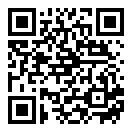Abstract:
Today, both suppliers and demanders of energy use diplomacy to secure their interests in this field. The quality of energy diplomacy in each country is affected by political policies, which are mainly determined, directed, and evaluated in the upstream documents. The purpose of this research is to provide a model for drafting energy diplomatic policies based on the analysis and extraction of conceptual procedures in upstream documents. The Constitution, Vision Document 1404 and its general policies, the Law of the Sixth Development Plan, general policies of resistance economy, general environmental policies, and general energy policies; are the selected documents that considered for conducting this research. Using a qualitative method of exploratory theme analysis and deskresearch-type information collection method this research has been conducted. After selecting the paragraphs related to the subject area of the research and performing open coding, in this method, a total of 119 basic themes, 34 organizing themes under 8 comprehensive themes (reliance on technology, investment, strengthening of energy trade infrastructure, exploitation of geographical location, ideal Islamic society) and the foundation of the new Islamic civilization, preservation, strengthening and development of national interests, internal policies and politics, economic and commercial approach to foreign policy and international relations) was extracted. In the end, the proposed model for the formulation of energy diplomacy policies of the Islamic Republic of Iran showed that the regulation of energy diplomacy policies in the upcoming period should be meaningfully related to the previous plans and also take into account the new requirements.







